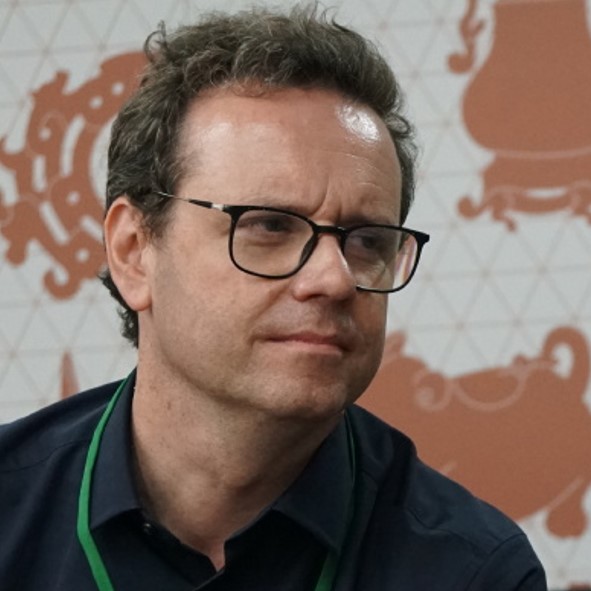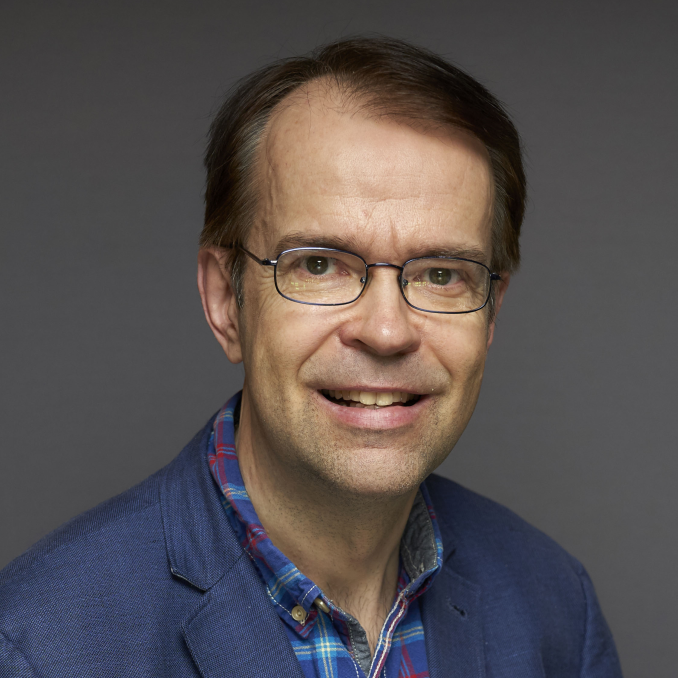Keynote Speakers
Title
Pandemic Learning and Teaching Policies and the Freedom to Teach
 Professor Bruce Macfarlane
Professor Bruce Macfarlane
Chair Professor of Educational Leadership and
Dean of the Faculty of Education and Human Development,
The Education University of Hong Kong
Speaker Bio
Bruce Macfarlane is Chair Professor of Educational Leadership and Equity and Dean of the Faculty of Education and Human Development at the Education University of Hong Kong. He is a former Head of the School of Education at the University of Bristol, and a former Associate Dean in the Faculty of Education at the University of Hong Kong. He has held visiting professorial positions in Australia, Japan, South Africa and Sweden.
Professor Macfarlane is a social philosopher of higher education who has developed conceptual frameworks for interpreting academic practice, ethics, and leadership. Applying a mix of empirical and philosophical enquiry, he has helped to define key concepts including academic integrity, academic citizenship, intellectual leadership, and student performativity.
His research focuses on the micro or individual level but is framed by the way academic identity is being re-shaped by the changing conditions affecting university life. His major works include Freedom to Learn (2016), Intellectual Leadership in Higher Education (2012), Researching with Integrity (2009), The Academic Citizen (2007) and Teaching with Integrity (2004).
Abstract
The effects of the Covid-19 pandemic on university teaching have mainly been discussed in relation to the technological capability of academics; teaching whilst working from home surrounded by other distractions and responsibilities, such as childcare; the robustness of the IT infrastructure of universities; and the extent of student access to computing equipment and broadband speed. Concerns about the mental health of students and academic faculty have also been rightly highlighted.
However, the effects of university policies on the freedom to teach have been largely overlooked. By the freedom to teach I am referring to the extent to which academics are able to design their own curriculum and pedagogic approach. This freedom is more rarely discussed in the literature on academic freedom because it has been largely taken-for-granted on the basis of a tradition of pedagogic self-governance in higher education.
During the pandemic the freedom to teach has been eroded, variously, by the streamlining of the curriculum, resulting in larger core or compulsory courses and correspondingly fewer optional courses that reflect the research specialism of academics; through top-down policies about how to teach online; through centralising control of decisions regarding extenuating circumstances affecting students; through the use of learning platforms designed not by academics but by EdTech companies; and by employing fewer academics on contracts that incorporate research. These policies are changing what it means to be a university teacher as opposed to a school teacher with far less autonomy in respect to making judgments about what to teach and how to do so.
Title
Educating Children In An Age of Somewhat Intelligent Machines
 Professor David Touretzky
Professor David Touretzky
Research Professor, Computer Science Department and the Center of the Neural Basis of Cognition,
Carnegie Mellon University, USA
Speaker Bio
David S. Touretzky is a research professor in the Computer Science Department and the Neuroscience Institute at Carnegie Mellon University in Pittsburgh, Pennsylvania. As founder and chair of the AI4K12 Initiative (AI4K12.org), he is leading the effort to develop national guidelines for teaching artificial intelligence in K-12 in the US.
Dr. Touretzky is also the developer of Calypso, an intelligent robot programming framework that makes sophisticated artificial intelligence tools accessible to children.
Abstract
Today's children are growing up in a world where, for the first time, machines can see and hear, understand some language, and perform many specialized reasoning tasks that make our lives better. In fact modern life is permeated by AI-powered technologies, with more on the way. As our levels of automation increase, major societal changes are on the horizon, and governments world-wide are recognizing the importance of children understanding how AI works. In the US, the AI4K12 Initiative (AI4K12.org) is developing national guidelines for teaching AI in K-12.
In this talk I will try to anticipate some of the effects of early AI education. Just as the advent of inexpensive computers and child-friendly programming environments have allowed us to introduce young children to computational thinking, new tools and computing resources are making it possible for children to directly engage with advanced AI technologies, and in doing so, develop skills for "AI thinking". Computer vision, machine learning, language understanding models, and autonomous mobile manipulators are coming not just to high school, but to elementary school. Educators must determine how best to integrate these technologies into the curriculum, and how the study of artificial intelligence can deepen our appreciation of what it means to be human.
Title
Heritage and Museum Education for a Meta-modern Age
 Professor Ross Parry
Professor Ross Parry
Deputy Head of School & Professor of Museum Technology,
University of Leicester, UK
Speaker Bio
A Principal Fellow of the Higher Education Academy, former Tate Research Fellow, and former chair of the UK’s national Museums Computer Group, Ross is also one of the founding Trustees of the Jodi Mattes Trust - for accessible digital culture. In 2018 he was listed in the Education Foundation’s ‘EdTech50’ – the fifty most influential people in the UK education and technology sectors.
Ross served on the International Scientific Advisory Board for ‘Learning 2.0’ managed by DREAM (the Danish Research Centre on Education and Advanced Media Materials) at the University of Southern Denmark, where in 2012 he was visiting professor. From 2017 to 2021 he served on the International Advisory Board for the €6mn ‘Our Museum’ project, funded by Nordea-Fonden and Velux Fonden. Today he is a member of the UK Research and Industry’s Steering Committee of its £19mn digital cultural heritage initiative ‘Towards a National Collection’.
Ross’ recent books include: ‘Museum Thresholds: the design and media of arrival’ edited with Ruth Page and Alex Moseley (Routledge, 2018); and ‘The Routledge Handbook of Media and Museums’ (2019), edited with Kirsten Drotner, Vince Dziekan, and Kim Schrøder. Ross is the author of 'Recoding the Museum: Digital Heritage and the Technologies of Change' (Routledge 2007), and in 2010 published 'Museums in a Digital Age' (also with Routledge).
Ross leads the ‘One by One’ international consortium of museums, professional bodies, government agencies, commercial partners and academics, that together are working to build digitally confident museums. After a three-year national project in the UK (working with the UK’s Museums Association, Arts Council England and the National Lottery Heritage Fund), the consortium’s latest project (‘Modelling New Digital Leadership in Museums’) now brings partners including the V&A, Science Museum and the UK’s Museums Computer Group into an action research collaboration with the Smithsonian Institution, American Alliance of Museums and the US Museum Computer Network.
Abstract
Much like the museum itself, education provision in the heritage sector will always be a work in progress. Just as the ideas of ‘museum’ and ‘heritage’ stay in motion, so their relationship with learning never settles. They find new channels through which to communicate, new tools through which to collaborate, new pedagogies from which to draw inspiration and confidence. And as they do, so their role in education and learning is re-assembled and re-balanced - from instructor to ally, from venue to platform, from resource to studio.
And yet, given the turbulence of current intersecting global crises (ecological, medical, cultural), and given this time of an ever-mediatised sector in an ever-dataful world, there’s no more appropriate time to take stock of what characterises the alchemy of ‘museum and heritage education’.
This keynote will propose one way of noticing shifts (in this meta-modern and post-digital moment) in professional practice and scholarly discourse around learning technology in museums and heritage. In terms of ‘products’, and WHAT museum and heritage education produces: a shift from producing instructive guides and handbooks, to now developing enabling tools (open and adaptable). In terms ‘people’, and WHO leads learning technology: a shift from the lauded technical competencies of the first adopters, to now the lived cultural experiences of multiple allies across the sector and society. In terms ‘principles’, and WHY this work exists: a shift from technology-centred, problem-based, progress-led activity, to people-centred, context-based, values-led activity. In terms of ‘places’, and WHERE this work takes place: a shift from closed projects, to an open commons of discourse and activity. And In terms of ‘process’, and HOW research and reflective practice develops: a shift from the accumulative synthesis of investigative experiments, to the responsive sprints of active campaigning.
Title
Values Education, Character Education and Positive Education
 Professor Kristján Kristjánsson
Professor Kristján Kristjánsson
Professor of Character Education and Virtue Ethics and Deputy Director of the Jubilee Centre for Character and Virtues,
University of Birmingham, UK
Speaker Bio
Kristján Kristjánsson is Professor of Character Education and Virtue Ethics and Deputy Director of the Jubilee Centre for Character and Virtues, University of Birmingham, UK. His research orientation is that of Aristotle-inspired philosophical scrutiny of theories in educational psychology and values education, with special emphasis on the notions of character and virtuous emotions. He has written extensively on themes in general education, moral education, educational psychology, moral philosophy and political philosophy. Professor Kristjánsson is the author of Social Freedom (C.U.P., 1996), Justifying Emotions: Pride and Jealousy (Routledge, 2002), Justice and Desert-Based Emotions (Ashgate, 2006), Aristotle, Emotions and Education (Ashgate, 2007), The Self and Its Emotions (C.U.P., 2010), Virtues and Vices in Positive Psychology (C.U.P., 2013), Aristotelian Character Education (Routledge, 2015), Virtuous Emotions (O.U.P., 2018) and Flourishing as the Aim of Education (Routledge, 2020). Prof. Kristjánsson has published over 130 articles in international journals and is the Editor of the Journal of Moral Education. In 1997, he was elected the Young Humanities Scholar of the Year by the Icelandic Council of Science, and in 2011 he was presented with the Ása Guðmundsdóttir Wright Award, the most prestigious scholarly award given to an Icelandic academic across the Sciences and Humanities. In 2016 he won the Society for Educational Studies Prize for the best Education book of 2015 (Aristotelian Character Education). His 2012 book has appeared in a Korean translation and his 2015 book has been translated into Japanese and it currently being translated into Chinese.
Abstract
In this presentation, Professor Kristjánsson gives an overview of those three different approaches in the field of values and education. He talks about their various sub-forms and then explores the pros and cons of each form and how they play out in classroom practice. He focuses on both overlaps and tensions between the three approaches and also mentions their political implications.

